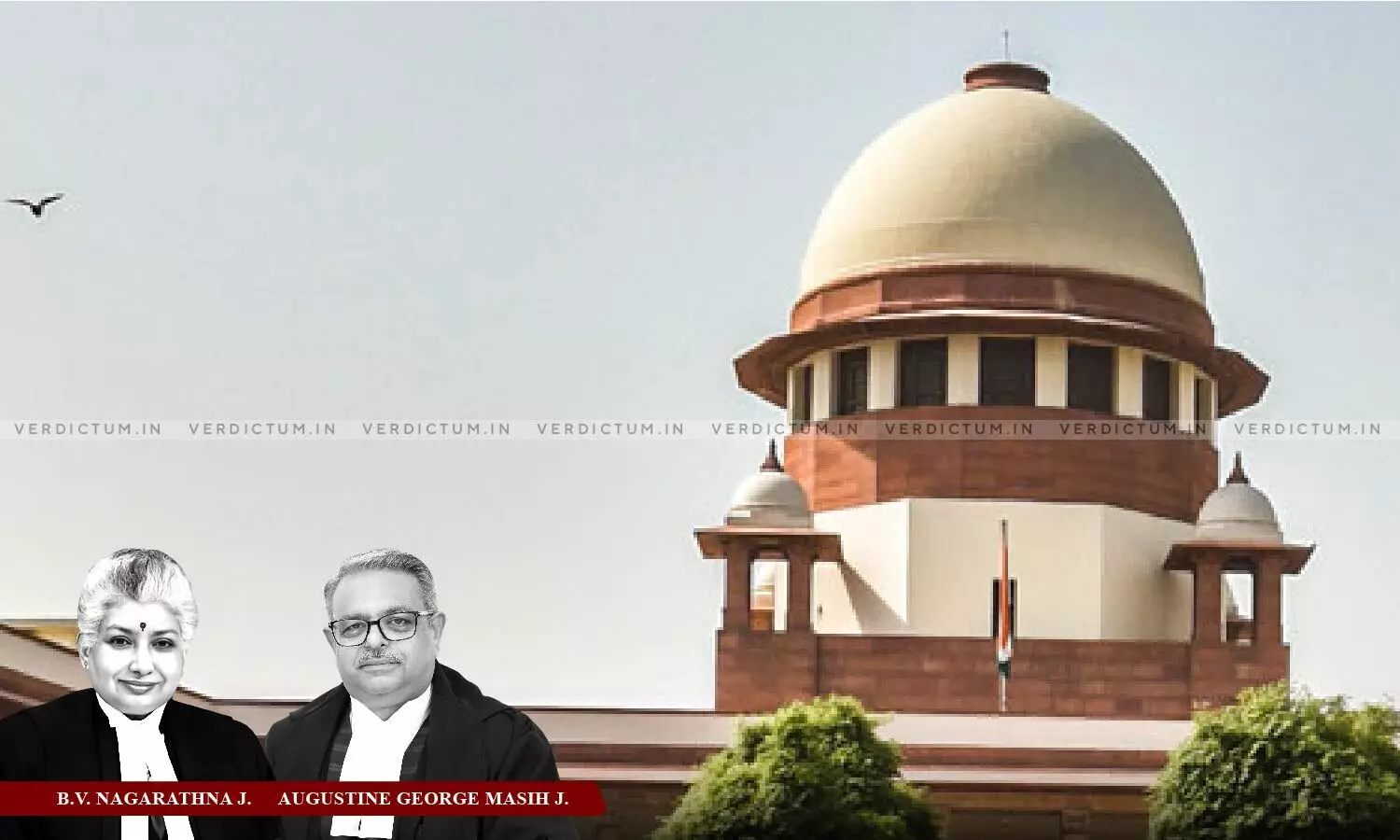
Burden Of Proving Allegation Of Non-Disclosure Of Any Material Fact Which Excludes Liability To Pay Compensation Is Only On Insurance Companies: SC
 |
|The Supreme Court observed that, in cases of insurance contracts, the burden of proving the allegations of any non-disclosure of material fact or any fraud, which excludes the liability of the Insurance Company to compensate the insured person or their nominee, lies only on the Insurance Company alone.
The Court also held that the onus cannot be shifted on the Insured Person to deal with such issues that have merely been alleged by the Insurance Company, without producing any evidence to support the allegation.
The Bench of Justice BV Nagarathna and Justice Augustine George Masih observed, “In other words, it is incumbent on each party to discharge the burden of proof, which rests upon him. In the context of insurance contracts, the burden is on the insurer to prove the allegation of non-disclosure of a material fact and that the non-disclosure was fraudulent. Thus, the burden of proving the fact, which excludes the liability of the insurer to pay compensation, lies on the insurer alone and no one else… In light of the aforesaid discussion on burden of proof, it has to be analysed if the respondent in the present case has adequately discharged his burden of proof about the fact of suppression of previous life insurance policies of the insured.”
Advocate Venkateswara Rao Anumolu appeared for the Appellant whereas Advocate Nishant Sharma appeared for the Respondents.
In the present case, the Appellant-Nominee of the deceased insured person assailed the order passed by the National Consumer Disputes Redressal Commission which allowed the revision petition filed by the Respondent-Insurance Company and repudiated the Appellant’s claim.
The claim of the Appellant was repudiated on the ground that the insured person had suppressed material facts in his application form with respect to existing life insurance policies from other insurers and upon investigation by the Insurance Company, it was found that the insured person had substantial life insurance cover with other insurance companies, even prior to the date of his application.
While discussing the test of the burden of proof as given under Sections 102 and 103 of the Indian Evidence Act, 1872, the Court reiterated that the burden always lies on the person who would fail if no evidence were given on either side and whenever the law places a burden of proof upon a party, a presumption operates against it. Hence, the Court considered the law of burden of proof and the presumption together, noting the exceptions enunciated under Sections 101 and 102 of the Evidence Act.
On this aspect, appreciating the submissions given by the parties, the Court observed, “The aforesaid approach adopted by the NCDRC is, in our view, not correct. The cardinal principle of burden of proof in the law of evidence is that “he who asserts must prove”, which means that if the respondents herein had asserted that the insured had already taken fifteen more policies, then it was incumbent on them to prove this fact by leading necessary evidence. The onus cannot be shifted on the appellant to deal with issues that have merely been alleged by the respondents, without producing any evidence to support that allegation. The respondents have merely provided a tabulation of information about the other policies held by the insured-deceased. The said tabulation also has missing information with respect to policy numbers and issuing dates and bears different dates of births.”
The Court also analysed the maxim of uberrimae fidei i.e utmost good faith, which governs insurance contracts and said, “Just as the insured has a duty to disclose all material facts, the insurer must also inform the insured about the terms and conditions of the policy that is going to be issued to him and must strictly conform to the statements in the proposal form or prospectus, or those made through his agents. Thus, the principle of utmost good faith imposes meaningful reciprocal duties owed by the insured to the insurer and vice versa. This inherent duty of disclosure was a common law duty of good faith originally founded in equity but has later been statutorily recognised as noted above. It is also open to the parties entering into a contract to extend the duty or restrict it by the terms of the contract.”
Accordingly, the Court, while setting aside the order passed by the NCDRC, directed the Insurance Company to make the payment of the insurance claim to the Nominee of the deceased insured person along with interest.
Cause Title: Mahakali Sujatha v. The Branch Manager, Future Generali India Life Insurance Company Limited & Anr. (Neutral Citation: 2024 INSC 296)
Appearances:
Appellant: Advocates Venkateswara Rao Anumolu, Sunny Kumar and Raushan Kumar.
Respondents: Advocates Nishant Sharma, V. Balaji and Rakesh K. Sharma.